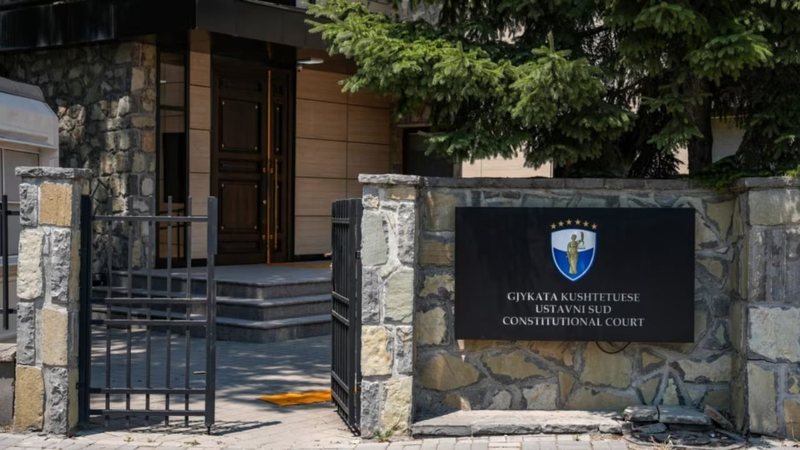
The Constitutional Court makes its decision today, ending the temporary measure for the constitution of the Kosovo Assembly


This decision is expected to be published, after last month the Constitutional Court ordered MPs not to take any decisions or actions until August 8 regarding the constitution of the Assembly, while it is reviewing two cases.
The Constitutional Court said that it is reviewing as joint cases the requests of the Democratic Party of Kosovo and the Democratic League of Kosovo, which had requested clarifications on constitutional issues related to the constitution of the Assembly.
It is not clear whether she will consider President Vjosa Osmani's request regarding what would happen if the Kosovo Assembly was not constituted by July 26 – the deadline set by the court earlier in a ruling – after the president withdrew the request on August 5, due to Judge Radomir Llaban.
In her first ruling on the issue of the constitution of the Assembly, which the deputies ignored, the Constitutional Court did not indicate the legal consequences of not respecting her decision.
Likewise, the Constitutional Court did not clarify whether or not it will review the president's request after she withdrew it, but said that it "deals with all issues legally submitted by authorized parties" and that it is "the right of the parties before the Court to request the withdrawal of the submitted requests."
Adrian Shtuni, a foreign policy and security expert from the Washington-based International Counterterrorism Center, told Radio Free Europe that institutional paralysis is undermining both Kosovo's statehood and constitutional order.
"To put it bluntly, the popular will and the major state interests are at risk of falling victim to immature egos and short-sighted political ambitions. The people of Kosovo neither deserve nor should accept this punishment," he declared.
Due to the political crisis, according to Gëzim Visoka, professor of Peace and Conflict Studies at the University of Dublin in Ireland, Kosovo faces two major risks.
The first, according to him, is that there may be new conditions and impositions on Kosovo, which were not realistic before.
According to Visoka, although Kosovo does not recognize the order of resolution 1244, from the United Nations' point of view, that resolution is functional, therefore there may be attempts by other mechanisms to interfere more in Kosovo's internal affairs.
"I am not alluding to the loss of Kosovo's statehood, or the restoration of Kosovo under international administration, but I do not rule out the possibility that there will be diplomatic pressure or actions that could further deepen the crisis, not only between the parties, but between Kosovo as a state and the international community," he told Radio Free Europe.
Kosovo has plunged into a political crisis as a result of the failure to establish new institutions following the February 9 parliamentary elections.
MPs have failed in 54 attempts since April 15 to form a new Parliament – a necessary step for the formation of a new Government – as no party won the majority to govern alone.
The Vetëvendosje Movement of the incumbent Prime Minister, Albin Kurti, won 48 seats and the other parliamentary parties have refused to vote for its candidate for Speaker of the Assembly, for whose appointment at least 61 votes are needed.
While Vetëvendosje has insisted that Albulena Haxhiu is a worthy candidate, some of the largest parliamentary parties, such as PDK, LDK, and AAK, have described her as a "divisive" figure.
MPs also disagree over the voting method, with the LVV not giving up on secret voting despite opposition from other parties. /rel

The Ukraine summit that ignored the tough questions
ideas
top
Alfa recipes
TRENDING 
services
- POLICE129
- STREET POLICE126
- AMBULANCE112
- FIREFIGHTER128



























